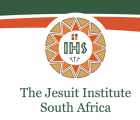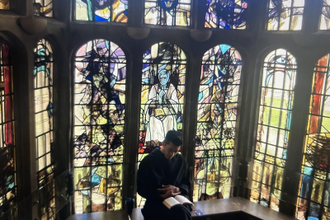South African Reflection: Censoring protest - deja vu?

During the 1980s the apartheid state ruthlessly censored the media - public and private - in an effort to keep South African citizens (and the rest of the world) in the dark about the deteriorating situation in the country. The current SABC policy of censoring any coverage of protests - now in defiance of the recent ICASA (Independent Communications Authority of South Africa) ruling, creditably unlike the 1980s - gives me a grim sense of déjà vu.
There are clearly parallels and differences between then and now. In both cases, the country is in crisis. Then, as now, the ruling elite knew the country was in political and economic trouble and that popular discontent was growing. Then, as now, the government was using its media - unashamedly state-run in the 1980s, publicly-owned now but heavily state-influenced nonetheless - to try to hide the crisis and pacify its supporters. The extent of crisis had to be carefully managed in the 1980s, the brutality of repression hidden. Only the atrocities of protesters would be openly reported to scare the minority who benefitted from apartheid into line.
Herein lies the difference. Formal apartheid is gone; all adult citizens can vote and are protected by a non-racial democratic Constitution and Bill of Rights. In fairness, too, with few exceptions (notably Marikana) police containment of protest has become less brutal. And up till now, such activity is freely subject to public scrutiny through private and public media.
In the 1990s the SABC transformed from a state to a public broadcaster, a shift in policy and perception. No longer (officially at least) the state's propaganda organ, it's a state-funded public broadcaster (theoretically) independent of state control - albeit subject to basic laws more concerned with taste than political expediency - and subject to theoretically independent bodies like ICASA and the Broadcasting Complaints Commission.
Theoretically...
Under its current head, Hlaudi Motsoeneng, the SABC's independence has de facto collapsed. (It's been weak for years, frequently deferential to the government). Motsoeneng's decision to defy ICASA's ruling - that the SABC lift its ban on reporting protests - is in effect a rebellion against the very structures that govern it.
Motsoeneng's decision and subsequent defiance of ICASA seems obvious. The government in power does not want citizens to see what's happening in the country as we move towards what may be hotly contested elections in a few weeks. Behind them the ruling ANC don't want their faithful voters troubled by the sense of discontent, perhaps troubled enough to either not vote or change their vote.
In short it's simply cynical partisan manipulation of the public broadcaster.
What the 1980s taught me is that such manipulation simply doesn't work. The truth got out then through various covert means, even in an era where private media was also censored. With the freer media we have today, not least the proliferation of online and social media-based platforms, hiding the truth becomes almost impossible. Motsoeneng and those who back him may be desperate to hide the truth from us, but their actions are futile and are being exposed.
Indeed their very attempts at political censorship may well turn some voters against those whom they seek to protect.
Follow the Jesuit Institute on twitter @JesuitInstitute

















